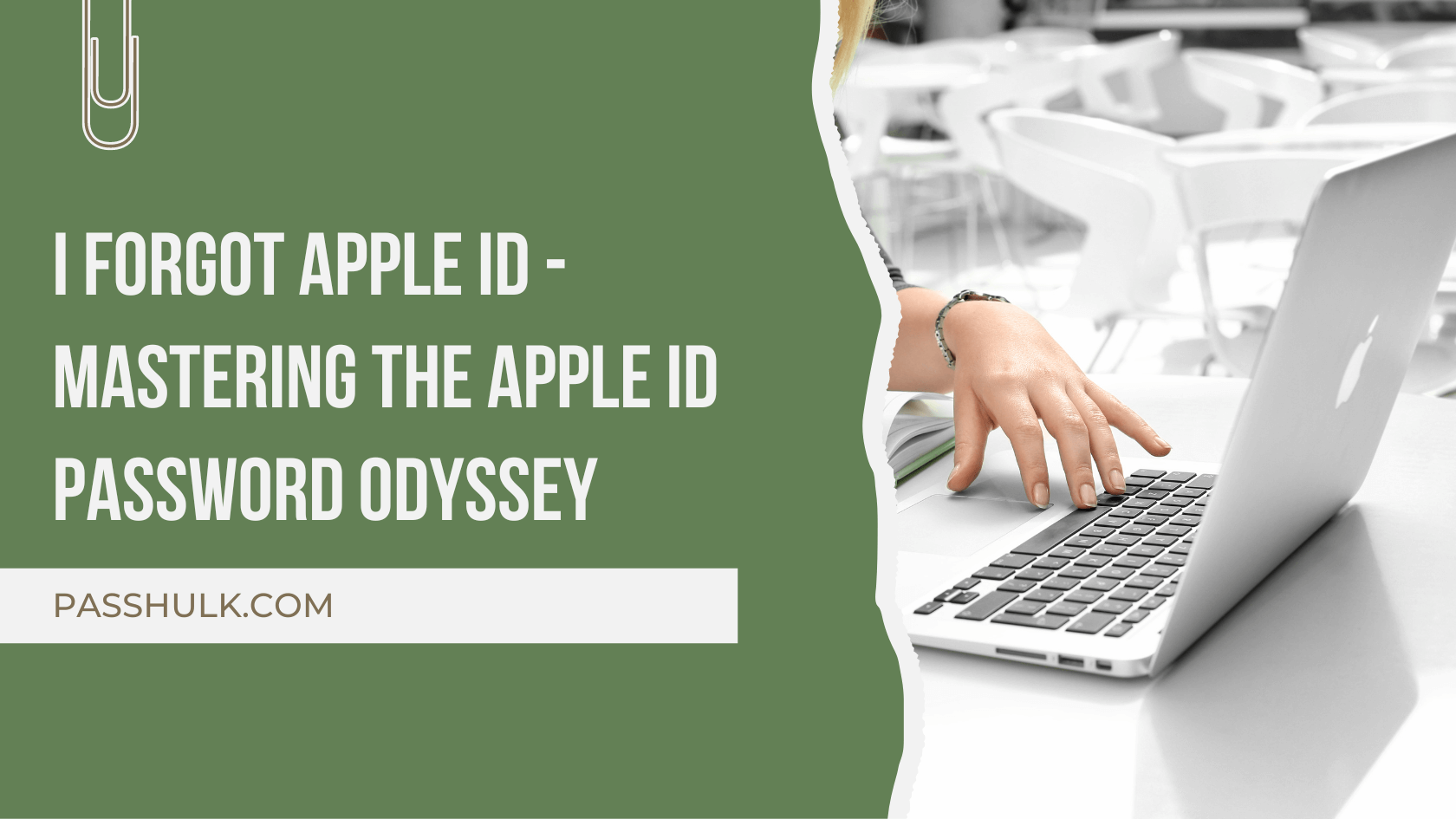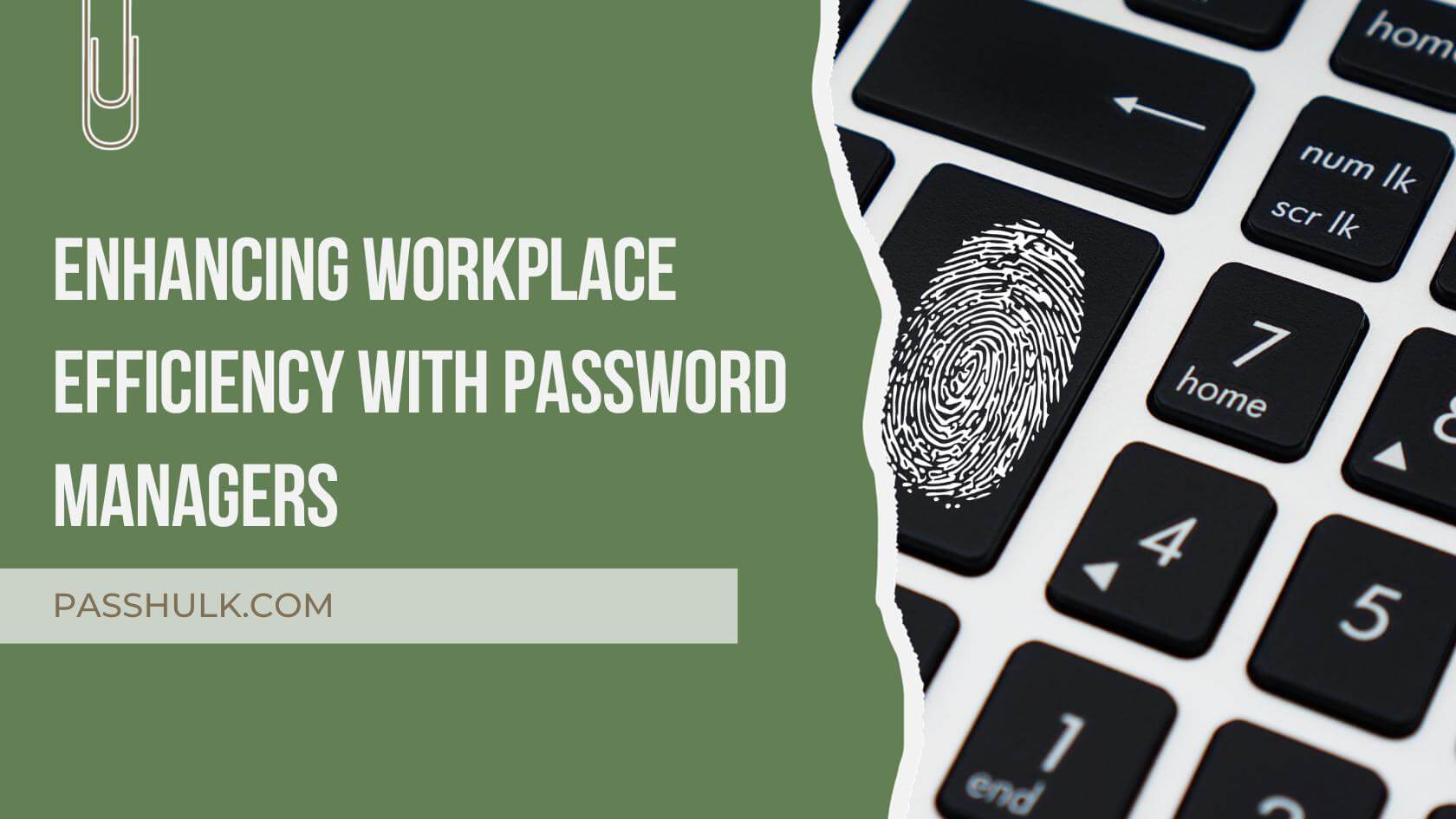A strong password is a crucial safeguard for protecting our online accounts and personal information from hackers and unauthorized access. It is a unique combination of characters, numbers, symbols, and upper- and lower-case letters that makes guessing or cracking the password extremely difficult. With the increasing frequency of cyber attacks and the constantly evolving methods employed by hackers, it has become more important than ever to create and use strong passwords that are not easily guessable or susceptible to brute force attacks.
Equipping ourselves with the knowledge of how to create strong passwords and understanding the dangers of using weak passwords can significantly enhance our online security and protect our valuable data from falling into the wrong hands.
Reasons Why You Need to Use Strong Passwords
Using strong passwords is crucial in today’s digital age. Weak passwords make it easier for hackers to breach accounts and gain unauthorized access to personal information.
One reason why strong passwords are necessary is that they act as a barrier against hacking attempts. Hackers use various techniques, such as brute force attacks, to crack passwords. Strong passwords with a combination of uppercase and lowercase letters, numbers, and special characters are more difficult to crack, providing an extra layer of security.
Another reason is that strong passwords prevent unauthorized access to personal information. With weak passwords, hackers can easily gain access to sensitive data, such as credit card details, personal identification, and online session information. This can lead to identity theft, financial loss, and other serious consequences.
Weak passwords also increase the risk of data breaches. Many people use the same password for multiple accounts, which means that if one account with a weak password is compromised, it can lead to a domino effect of security breaches. Using unique and strong passwords for each account reduces the risk and limits the damage in case of a breach.
In conclusion, using strong passwords is essential to protect personal information and prevent unauthorized access. By creating unique and complex passwords, individuals can significantly enhance their online security and reduce the risk of falling victim to cybercrimes.
Different Types of Passwords
In the realm of digital security, passwords play a pivotal role in safeguarding our online accounts and personal data from unauthorized access and potential cyber risks. However, not all passwords possess the same level of strength. They can be categorized into distinct types, ranging from easily crackable to highly secure options. A comprehension of these variations empowers individuals to make informed decisions regarding their online security. Let’s delve into three prevalent password categories: vulnerable passwords, robust passwords, and the utilization of password managers.
Vulnerable passwords are easily guessed or highly predictable, often incorporating common phrases, dictionary words, or personal details like names and birth dates. These passwords are susceptible to brute force attacks, where hackers deploy automated software to exhaustively guess combinations. Steering clear of weak passwords is crucial, as they offer minimal protection against unauthorized access.
In contrast, robust passwords are considerably more challenging to crack, typically comprising a mix of uppercase and lowercase letters, numbers, and special characters. These intricate passwords, characterized by their length and complexity, furnish a high level of security, making it exceptionally difficult for hackers to decipher or exploit them.
Password managers serve as tools or applications facilitating the creation and secure storage of passwords. They generate intricate and distinct passwords for each online account, storing them in an encrypted database shielded by a master password. Leveraging password managers allows individuals to maintain strong, unique passwords for each account without the burden of memorization.
To conclude, comprehending the diverse nature of passwords is vital for upholding robust online security. Weak passwords are susceptible to exploitation, while the adoption of strong passwords and effective password management practices adds an extra layer of defense to personal information and online accounts. Prioritizing password security and making informed choices are essential safeguards against cyber threats.
Simplified Passwords
These are easily guessed and highly vulnerable to brute-force attacks, often containing common phrases, dictionary words, or personal details like names and birth dates. However, relying on such passwords significantly jeopardizes the security of our online accounts and personal information.
Hackers use automated software to guess passwords by trying all possible combinations in what is known as a brute-force attack. With simple passwords, hackers can easily gain unauthorized access to our online accounts, compromising our sensitive data and personal information.
It is crucial to avoid using simple passwords and instead focus on creating stronger and more secure ones. Strong passwords typically consist of a combination of uppercase and lowercase letters, numbers, and special characters. They are longer in length and use a mix of different characters, making it extremely difficult for hackers to guess or crack them.
By taking the time to create strong and secure passwords, we significantly enhance our online security and protect ourselves from potential cyber threats and unauthorized access. Investing in strong passwords is a small yet important step towards safeguarding our personal information and ensuring a more secure digital life.
Character Passwords
Character passwords play a crucial role in creating strong and secure passwords. When we talk about character passwords, we refer to using a combination of uppercase and lowercase letters, numbers, and special characters in our passwords.
The inclusion of special characters increases the complexity of a password, making it significantly harder for hackers to guess or crack. However, it is not enough to simply include special characters – it is equally important to evenly distribute them throughout the password. For example, instead of placing all the special characters at the beginning or end of the password, intersperse them throughout the entire password to enhance its strength.
One effective technique that can be used to create strong character passwords is leet speak. Leet speak involves replacing certain letters with their numerical or special character equivalents. For example, replacing “a” with “@” or “e” with “3”. This technique adds an extra layer of complexity to the password and further strengthens its security.
By using character passwords and incorporating special characters evenly throughout them, we can significantly enhance the strength of our passwords and better protect our online accounts from unauthorized access. Remember, passwords are the first line of defense in securing our personal information, so creating strong and complex character passwords is crucial in maintaining our online security.
Password Combinations
One of the most effective ways to enhance password strength is by using a mix of characters. This includes combinations of letters, numbers, and special characters. By including a variety of characters in your password, you make it significantly more difficult for hackers to guess or crack.
To create a strong password combination, consider using a combination of lowercase letters, uppercase letters, numbers, and special characters. For example, instead of using a simple word like “password,” try mixing it up by using a combination like “P@ssw0rd!”.
When using a mix of characters, avoid using sequential or repetitive patterns. Instead, try interspersing the different character types throughout the password. This could involve starting or ending the password with a special character, or including numbers and uppercase letters in between the lowercase letters.
Additionally, consider using different languages or words from different languages to further enhance the complexity of your password combination. This adds an extra layer of security as it makes it harder for hackers who may be familiar with common English words or patterns.
By using a mix of characters in your password combination, you significantly increase its strength and make it more secure against unauthorized access. Remember to avoid common mistakes like using easily guessable combinations such as “123456” or “qwerty.”
Memorable Passwords
Creating strong and memorable passwords is essential for protecting our online accounts. While using a mix of characters like lowercase letters, uppercase letters, numbers, and special characters is important, there are additional tricks to make passwords easier to remember.
One approach is to use phrases or sentences instead of single words. For example, “Ilovetoswimdaily!” is a strong password that is easy to remember because it tells a story and incorporates various character types.
Another trick is to make passwords poetic by using lines from memorized poems. For instance, “Wh@t3v3r_happ3ns@_s1xw0rd_p@ssw0rd” is a memorable and strong password that substitutes letters with symbols or numbers.
By using these techniques, we can create passwords that are both secure and easy to recall. It is important to note that while having a memorable password is beneficial, it should never compromise security. It is recommended to also implement additional security measures like two-factor authentication and regularly updating passwords.
Protecting our online accounts starts with creating strong and memorable passwords. So, let’s get creative and make our passwords both secure and easy to remember.
How to Create Secure Passwords
Creating secure passwords is crucial in today’s digital world to protect our online accounts from unauthorized access. By following some simple guidelines, we can ensure that our passwords are strong and difficult for hackers to crack. Firstly, it is important to use a combination of uppercase and lowercase letters, numbers, and special characters. Avoid using easily guessable information such as birthdays or pet names. Instead, opt for random combinations of characters that have no personal significance. Additionally, longer passwords are generally more secure, so aim for a minimum of 12 characters.
It is also recommended to avoid using the same password for multiple accounts, as compromising one account could lead to a domino effect of security breaches. Lastly, consider using a reliable password manager to store and generate complex passwords for different accounts. By implementing these measures, we can significantly enhance the security of our online presence and safeguard our sensitive information from cyber threats.
Include Lowercase Letters, Uppercase Letters and Special Characters
Including lowercase letters, uppercase letters, and special characters in a strong password is vital for enhancing its security. When creating a password, it is essential to make it as complex as possible to make it harder for hackers to guess or crack. Mixing lowercase and uppercase letters, along with special characters such as symbols or numbers, increases the complexity and makes the password significantly stronger.
Using a combination of lowercase letters, uppercase letters, and special characters adds an additional layer of protection against brute force attacks, which involve systematically trying every possible combination until the password is cracked. By including these different character types, the number of possible combinations increases exponentially, making it more challenging for hackers to access your accounts.
To maximize the effectiveness of using special characters, it is recommended to spread them evenly throughout the password. Randomly inserting special characters rather than grouping them together makes the password even more secure and less predictable.
In summary, including lowercase letters, uppercase letters, and special characters in a strong password is crucial for creating a complex and difficult-to-guess password. By diversifying the characters and spreading special characters evenly, you significantly enhance the security of your online accounts.
Make Your Password Longer Than 8 Characters
When it comes to creating strong and secure passwords, one of the most important factors to consider is the length. It is recommended to make your password longer than 8 characters for several reasons.
Firstly, longer passwords are less likely to be hacked using brute force methods. Brute force attacks involve systematically trying every possible combination of characters until the correct password is found. By increasing the length of your password, you significantly increase the number of possible combinations, making it exponentially more challenging for hackers to crack.
Furthermore, the strength of a password is directly influenced by its length. A longer password provides more entropy, which refers to the randomness and unpredictability of the characters used. This means that a longer password is more difficult to guess, guess, or crack using automated tools.
Therefore, when creating secure passwords for your online accounts, it is crucial to prioritize password length as a key factor. Aim for passwords that are significantly longer than the minimum required length of 8 characters. Consider using a mix of uppercase letters, lowercase letters, numbers, and special characters to further enhance the complexity of your password.
By making your password longer than 8 characters, you significantly enhance its strength and safeguard your online accounts against unauthorized access. Remember, the longer the password, the stronger it becomes in the face of cyber threats.
Avoid Using Personal Information in Your Password
One of the most crucial steps in creating a strong and secure password is to avoid using personal information. While it may be tempting to use names, birthdays, or addresses that are easy to remember, doing so puts your online security at risk.
Using personal information in your password can have a significant impact on the security of your accounts. Hackers can easily obtain personal details from various sources, such as social media profiles, online directories, or data breaches. If your password is linked to personal information, it becomes much easier for hackers to guess or crack it using automated tools.
By using easily guessable information, you expose yourself to a range of risks. Cybercriminals can gain unauthorized access to your accounts, steal sensitive information, or even impersonate you. This can result in identity theft, financial loss, reputational damage, or other serious consequences.
To ensure the security of your online accounts, it is essential to create unique and complex passwords that cannot be easily tied to personal details. Use a mix of uppercase letters, lowercase letters, numbers, and special characters. Consider using a password manager to generate and store strong passwords. By avoiding personal information, you significantly reduce the risk of falling victim to hacking attempts and protect your valuable online assets.
Don’t Reuse Previous Passwords
Don’t Reuse Previous Passwords: Protecting your online security reusing passwords across multiple accounts may seem convenient, but it significantly compromises your online security. If a cybercriminal gains access to one account, they will have access to all accounts using that same password. This puts your personal and professional information at grave risk.
To address this issue, it’s crucial to follow best practices for password management. Firstly, create unique passwords for each account. Using a password manager can help you generate and securely store complex passwords for easy access. Secondly, regularly change your passwords, especially after a security breach or suspicious activity.
Using a combination of uppercase and lowercase letters, numbers, and special characters can make your passwords stronger. Avoid using common phrases or personally identifiable information that can be easily guessed. The longer and more complex your password, the harder it is for cybercriminals to crack.
By not reusing passwords, you significantly reduce the risk of unauthorized access to your personal and professional accounts. Take your online security seriously and prioritize unique passwords for each account to safeguard your sensitive information from cybercriminals.
Tips for Creating and Managing Your Passwords
Creating and managing strong passwords is essential for protecting your online accounts from unauthorized access and potential data breaches. In this article, we will provide you with 10 valuable tips for creating unbreakable passwords and managing them effectively. By following these tips, you can significantly enhance your online security and safeguard your personal and professional information. Let’s dive in!
Use a Password Manager App or Software
Using a password manager app or software is a highly recommended way to enhance your online security and protect your sensitive information. These tools offer numerous benefits and functionalities that make managing your passwords much easier and more secure.
One of the main advantages of using a password manager is the ability to generate strong and unique passwords for all your online accounts. These passwords are often long and complex, incorporating a combination of lower and upper case letters, numbers, and special characters. The password manager can automatically generate and store these passwords for you, eliminating the need to remember them.
Moreover, password managers have the capability to encrypt and safely store your password information, whether in the cloud or on your device. This guarantees the protection of your passwords against unauthorized access, minimizing the likelihood of them being compromised. The implementation of encryption means that even if someone were to acquire access to your password file, the data would remain unreadable without the corresponding encryption key.
Another advantage of password managers is the convenience they provide. These tools typically offer features such as automatic password entry, which saves you time and effort when logging into your accounts. They can also sync your passwords across multiple devices, allowing you to easily access your accounts from different platforms.
In conclusion, using a password manager app or software is an excellent way to generate strong passwords, store them securely, and simplify the process of managing your online accounts. By utilizing these tools, you can enhance your online security and reduce the risk of unauthorized access to your personal information.
Use Multi-Factor or Two-Factor Authentication When Available
One of the best ways to enhance the security of your online accounts is by using multi-factor or two-factor authentication (MFA/2FA). This additional layer of security requires an extra method of authentication, such as a PIN, code sent to your email or phone, fingerprint, or voiceprint, on top of entering your password.
MFA/2FA adds an extra layer of protection against unauthorized access by ensuring that even if someone obtains your password, they still cannot access your account without the additional authentication method. This reinforces the security provided by strong passwords, making it significantly more difficult for cybercriminals to gain entry to your accounts.
By enabling MFA/2FA, you significantly reduce the risk of unauthorized access to your valuable personal and financial information. Even if a hacker manages to guess or steal your password, they would still need the second authentication factor to gain access to your account.
Whether you are using online banking, email, social media, or other online services, it is vital to enable multi-factor or two-factor authentication whenever it is available. This simple step can significantly enhance the security of your accounts and protect you from falling victim to unauthorized access.
Remember, always prioritize your online security by using strong passwords and enabling additional security measures such as multi-factor or two-factor authentication whenever possible.
Conclusion
In conclusion, using strong passwords is of utmost importance in maintaining online security. Weak passwords can be easily cracked by cybercriminals, leaving your personal and financial information vulnerable to unauthorized access. By following the tips mentioned in this article, such as using a combination of uppercase and lowercase letters, numbers, and special characters, you can create unbreakable passwords that are difficult to guess.
However, it is not enough to rely solely on strong passwords. Implementing password management tools and enabling multi-factor authentication adds an extra layer of protection to your accounts. Password managers can securely store and generate complex passwords for all your online accounts, eliminating the need to remember them all. Multi-factor authentication ensures that even if someone has your password, they still need another form of verification to access your account.
To safeguard your online presence, it is crucial to take action now. Start by creating strong passwords for all your accounts and consider using a password management tool. Enable multi-factor authentication whenever possible to enhance your account security. By implementing these measures, you can greatly reduce the risk of falling victim to unauthorized access and protect your valuable personal information.



